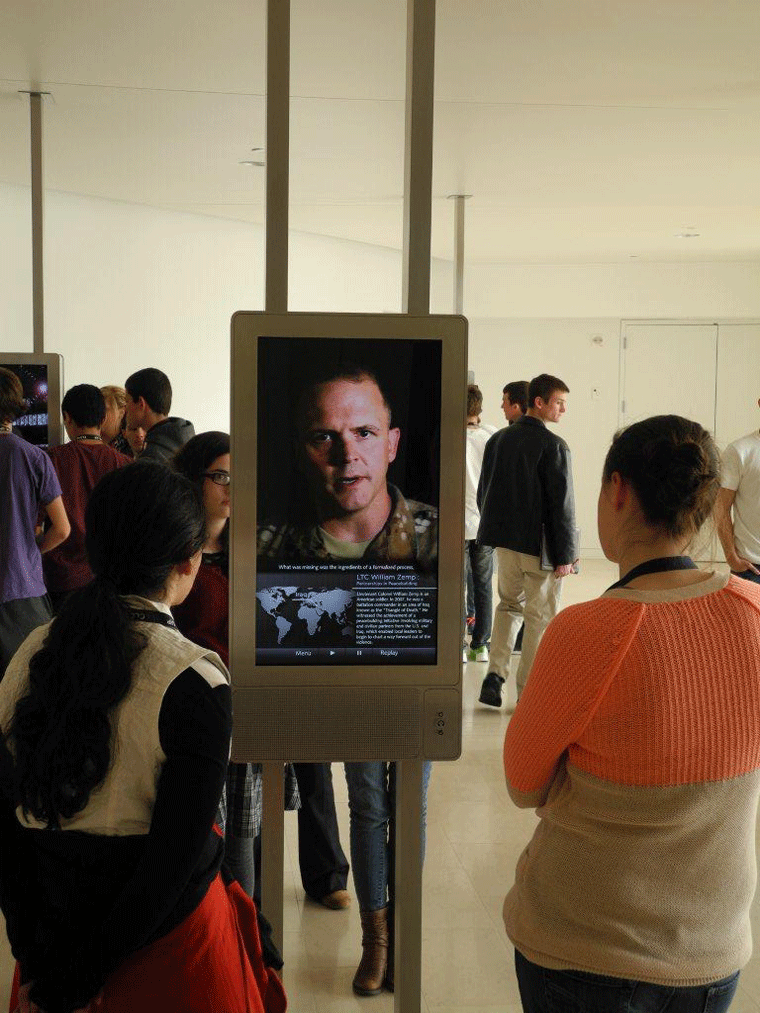Educating Younger Audiences about Peacebuilding in Iraq
Ann-Louise Colgan, USIP's Global Peacebuilding Center director, shares the impact of the newest video in the “Witnesses to Peacebuilding" series.

What does peacebuilding look like?
This is not a question that has often crossed the minds of high school students before they visit USIP’s Global Peacebuilding Center. And as they start to brainstorm scenarios and actors, it is unlikely they are thinking about a story that begins in Iraq, in the middle of a place called the “Triangle of Death”; a story told by an American soldier.
This is the eye-opening power of the newest video in the “Witnesses to Peacebuilding” series in the Global Peacebuilding Center. It features Lieutenant Colonel William Zemp’s account of the reconciliation initiative in Mahmoudiya, Iraq, in 2007, in which USIP and other partners played an important role.
The video was released last fall and is now regularly used in onsite educational programs for student groups. It describes the violent circumstances in an area south of Baghdad that gave way to a small window of opportunity seized by local Iraqis, who requested support. Working with a range of partners, USIP was able to bring tribal leaders together in a locally-facilitated process that helped to chart a way forward out of the violence.
In a dramatic way, the video brings to life USIP’s work in Iraq, and challenges traditional assumptions of who peacebuilders are and what the process can look like in the context of war.
Some students who come to the Global Peacebuilding Center have only heard about Iraq on the news; others have family or friends who have served there. But across this spectrum of context, it is clear that these young people are learning something through LTC Zemp’s story: they comment that it gives them a new appreciation of the different roles the military can play; that it underscores the importance of partnerships of all kinds in these conflict zones––partnerships between military and civilian, and between U.S. and Iraqi.
Above all, it is a story that gives hope: it is a compelling and concrete example that shows it is possible to build relationships and rebuild trust––to build peace––even in such difficult circumstances.
The experience in Mahmoudiya remains powerful for those who served there, too. LTC Zemp visited USIP last fall and spoke of sharing the video with others who had been there at that time; one of those soldiers, SFC Washington, later visited and watched the video along with his wife who is also an army sergeant.
Conveying this story to younger audiences is one way in which broad lessons can be passed along and a broader understanding can be achieved of the USIP’s role in Iraq.
The Global Peacebuilding Center at the U.S. Institute of Peace engages students and educators through onsite programs and online resources and activities at www.buildingpeace.org. The video featuring LTC Zemp’s story, along with associated resources for educators, is available at: https://www.usip.org/public-education/educators/witnesses-peacebuilding



